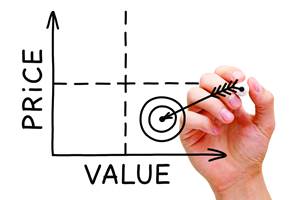Pointers When Contesting Your Tax Assessment
Whether you own or rent, all businesses benefit from lower taxes.
Share
Smart businesses invest their capital in areas where they get the greatest return. Real estate taxes provide no return; they are simply forced expenditures that must be paid regardless of profit. Property taxes are however, a controllable expense.
Lower property taxes positively affect both short-term yields and long-term returns. The short-term impact is the obvious increase in the bottom line due to lower taxes. On a long-term basis decreased property taxes translates to higher business and/or real estate values and stock prices. A small investment of time can ensure that an investment of capital fighting your taxes will reap double-digit returns.
Spend some time educating yourself about the real estate market and how your taxes are determined. Right now busi-nesses and property owners are dealing with unprecedented increases in fuel and utility costs. Both fixed and variable expenses are increasing, as a result your real estate may not be worth what the tax man says.
In almost all states, real estate is assessed based upon some percentage of the fair market value of the real estate, and one of the main indicators of value is the income that could be produced from the property using current rents, vacancies and market expenses.
Those taxpayers who contest real estate taxes now can take advantage of the current situation. Because real estate values ultimately are a result of how much occupants are willing to pay for space, and given that in the past several years utility costs have more than doubled, and that those costs simply cannot be easily passed onto customers, businesses simply cannot afford to spend a lot of capital on space.
As less people are able to afford a certain type of space, the demand for that space drops—resulting in a decrease in market rents and the value of property drops. Many real estate markets suffer from high vacancies, and higher utility and insurance expenses. By establishing an estimated net income from these market statistics and ultimately proving a lower assessed market value, an owner may be able to reduce its real estate taxes.
Even if the market has weakened, unless contested, the assessment of your property value will not likely decrease. However, a newly established assessment may be used as the basis for future assessments thus positioning your company for future years. Reduced real estate taxes have a compounding effect. Even if your assessment in future years steadily climbs it is true that having started at a lower base you may save money indefinitely. Conversely, by missing an opportunity to control taxes, a company will continue to spend money on an item that does not have a return.
Taxpayers are not the only ones that keep a close eye on your assessment. The local school districts are one of the main recipients of your tax dollars. As a result, if you are under-assessed the district may file an appeal to increase your assessment. Prior to engaging in any correspondence with anyone seeking to increase your taxes you may want to consult a real estate tax professional.
Related Content
The Trifecta of Competitive Toolmaking
Process, technology and people form the foundations of the business philosophy in place at Eifel Mold & Engineering.
Read MoreTackling a Mold Designer Shortage
Survey findings reveal a shortage of skilled mold designers and engineers in the moldmaking community, calling for intervention through educational programs and exploration of training alternatives while seeking input from those who have addressed the issue successfully.
Read MoreSteps for Determining Better Mold Prices
Improving your mold pricing requires a deeper understanding of your business.
Read MoreMold Design Review: The Complete Checklist
Gerardo (Jerry) Miranda III, former global tooling manager for Oakley sunglasses, reshares his complete mold design checklist, an essential part of the product time and cost-to-market process.
Read More













